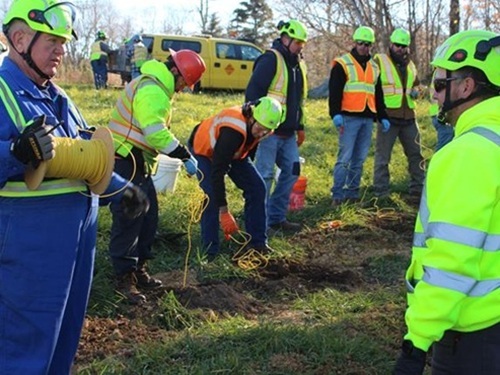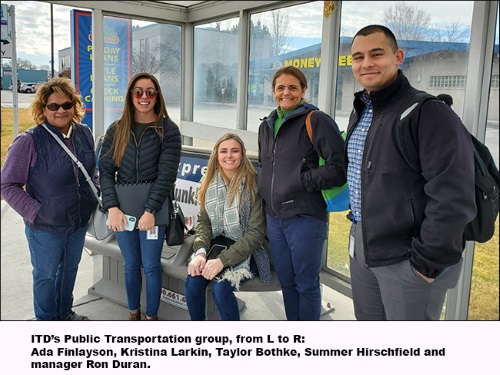The public transportation division of the Idaho Transportation Department recently activated an in-house developed web portal for distributing Coronavirus Aid, Relief, and Economic Security or CARES Act emergency funding to transit providers around the state.
[Above photo by the Idaho Transportation Department.]
Taylor Bothke, the division’s grants and contracts officer, noted that emergency funding came with tracking requirements to monitor how the money is distributed and used. “It didn’t take long for our team to realize we were going to have to go above and beyond the normal requirements for managing federal funds,” Bothke emphasized in statement.

To that end, ITD’s public transportation team created a CARES Act online portal to help state transit providers submit back-up documentation, request authorization for spending, and self-generate reimbursement documentation. Data is also collected through the portal, measuring how CARES Act funding impacts Idaho overall as well.
“We saw this as an opportunity to innovate and build a new, more efficient system that brings clarity and vision to how this money is being managed, and the impact it is having on Idahoans,” noted Ron Duran, the division’s manager. “We want to provide complete transparency on how we are managing these funds.”

He pointed out that while other states spent $1 million to $3 million to outside vendors to build such CARES Act funding portals, ITD’s public transportation team built one in-house in three short weeks – enabling the agency to process its first CARES Act transit funding distribution in May.
“It gives Idaho transit providers the opportunity to monitor and manage their grant award like never before,” Bothke said. “Providers have told us this online portal is the way of the future. We think this online process is mutually beneficial for not only our office and transportation providers, but most importantly the firsthand customers who are riding public transportation in Idaho.”
“[Our] team’s swift action got this relief funding out to these agencies months sooner, allowing providers the means to increase and improve their sanitation practices, provide masks to riders, give admin pay to laid off workers, and ultimately keep their doors open,” Duran added.
 States
States
NCDOT Staff Participate in ‘Explosive’ Technical Training
December 19, 2025 States
States

